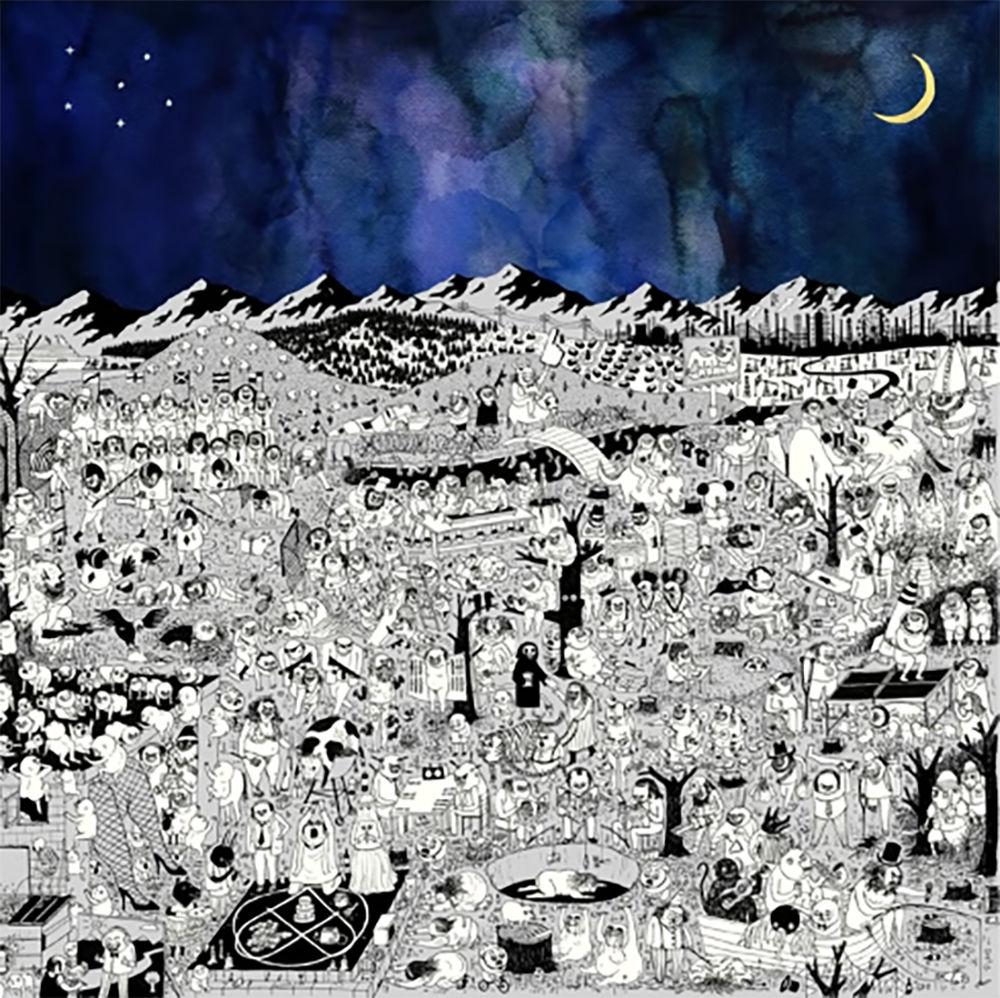Josh Tillman, also known as Father John Misty, encapsulates the state of human affairs in his new album, “Pure Comedy.” The tragedy of life is approached with a satire lens, weaving between melancholy and sincerity. From religion and politics to materialism and cynicism, Tillman self-consciously puts forth a record both complex and bold.
It sounds as if Elton John composed it as an apocalyptic warning. The similarity of their vocal timbres is embodied by the track, “Things It Would Have Been Helpful to Know before the Revolution.” Meanwhile, the guitar strums on “So I’m Growing Old on Magic Mountain” garners influence from Neil Young. Although the album is sprinkled with a few ballads, I’d classify it as folk-rock. Despite the album being called “Pure Comedy,” it isn’t as ironic as his previous release, “I Love You, Honey Bear.”
Prior to listening to the album, I was wary that the album would be too metaphysical and saturated with allusions. However, each song presents the listener with a coherent argument that prompts one to think twice about what he/she just heard. Whether you listen to Father John Misty or not, the album’s exploration of the inherent inadequacies in our society will intrigue you.
The album sets in motion with its titular track, which serves as both an introduction and topical summary of the album. The melodic “Pure Comedy” artfully progresses lyrically from birth to death, ending with the line, “I hate to say it, but each other’s all we got.” In between, Father John Misty questions the function of language and religions, which, according to the song, collectively serve to endow the horror show that is life with meaning. The “prison of beliefs” lyric hints at groupthink, a phenomenon applicable to several facets of life, be it politics, consumerism, etc.
“Ballad Of The Dying Man” employs an acoustic guitar, piano and a wispy choir. The song is both harmonious and raw. The lyrics, “Eventually the dying man takes his final breath / But first checks his news feed to see what he’s ’bout to miss” communicates a more grim aspect of social media, in which some are so reliant on it that they are living through it. Figuratively, a crippling addiction as such is death in itself.
Another standout track is “A Bigger Paper Bag,” which is my favorite on the album. The song’s persona is introspective, reflecting on the formulaic perception of how the public views him and how he views himself. Dissonance is portrayed in the lyrics, “what a fraud / what a con.” Moreover, he feels like he’s being used with the lyrics, “It’s easy to assume that you’ve built some rapport / with someone who only likes you for what you like yourself for.” An undeniable epiphany accompanies seeing someone else for who they actually are. While shallowness is omnipresent in humanity, perhaps it’s easier to filter through the people who superficially believe a talent is what dictates your worth. By “drink[ing] like a fish,” he attempts to stave off life’s difficulties. Losing oneself in a paper bag could signify the sensation of suffocating from a certain situation or relationship. Unfortunately, while alcohol might help him escape, it’s only a matter of time before he drowns in the paper bag.
The aforementioned theme is more boldly illustrated in the track “Leaving LA.” Father John Misty sings he is merely a “white guy … who takes himself so goddamn seriously.” He predicts his fans will eventually abandon him because he wants to make 10-verse songs, a sarcastic nod to “Leaving LA.” He’s somewhat unsure of where he stands career-wise, feeling “a little less human with each release,” which could hint at feeling like he’s sold out in some respect. Alternatively, there could be an inconsistency regarding what he wants to do musically, but is restricted to. “Leaving LA” is one of the most autobiographical and poignant songs I’ve listened to in a while.
At face value, “Pure Comedy” begs the question of whether humanity is losing its way. Yet, the album isn’t as morbid or boastful as it appears. It’s a testament to the fact that even when life runs amok, there’s resilience in the face of adversity.













